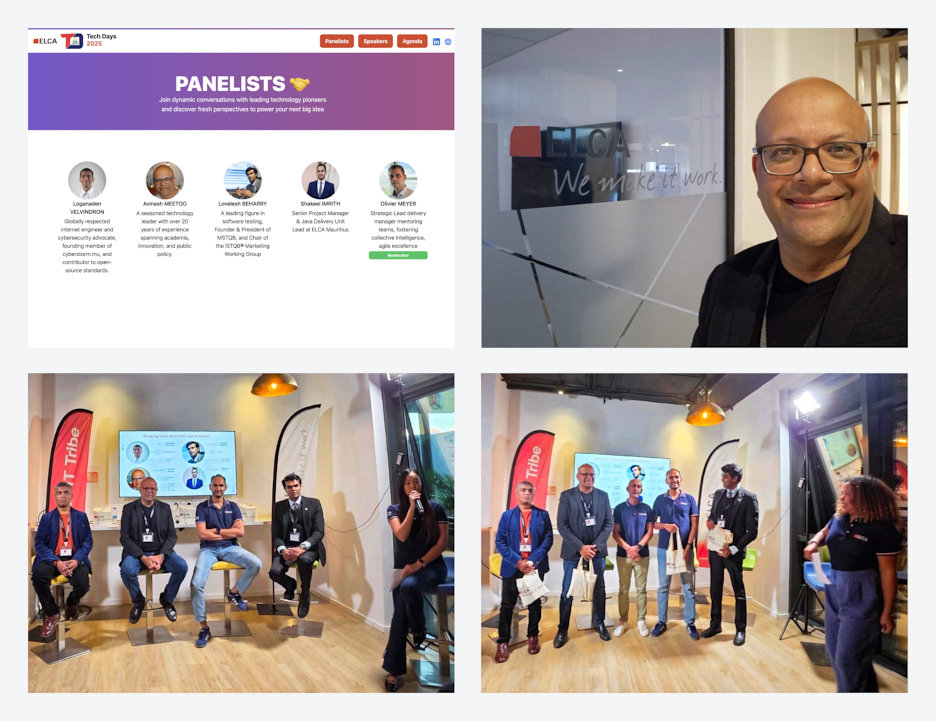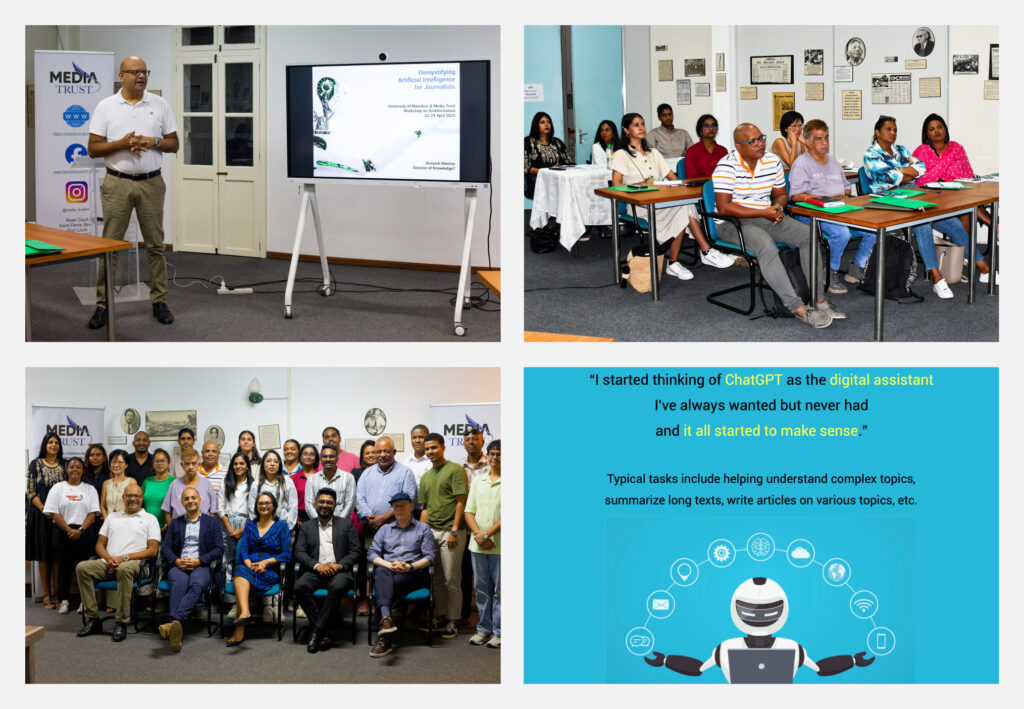
On Friday 27 June 2025, I had the honour of joining a panel discussion on “Bridging Mauritius Towards an Intelligent Island” during ELCA Mauritius’ Tech Days 2025.
Since 1968, ELCA has been at the forefront of Switzerland’s digital transformation. With a global team of 2,300 professionals based in Switzerland, Italy, Spain, Vietnam and Mauritius, the company continues to grow. ELCA is actively recruiting talent in front-end and back-end development and testing (Java, .NET, Python, React, Flutter), data analytics (Power BI), CRM functional consulting, and digital marketing. They also offer opportunities for trainees and apprentices.
Ahead of the panel, a series of insightful presentations were delivered on cutting-edge topics, including data-protected local Large Language Models, AI integration in software, autonomous AI agents and the critical need to prevent AI from becoming a mere copy-paste source in software development. Other key subjects included enterprise application architecture, cost-efficient infrastructures, software testing, ethical hacking and post-quantum cryptography.
During the panel, I emphasised that technology, including Artificial Intelligence, is not an end in itself but a strategic enabler. For Mauritius to achieve a higher level of development, we must begin with a shared national vision and clearly defined goals. Only then can technologists develop impactful solutions to our pressing challenges. I truly believe Mauritius has the talent and potential to become one of the world’s most advanced nations but it is time to break down silos, make people more innovative and tackle our complex challenges collaboratively.
I sincerely thank ELCA Mauritius for the kind invitation, particularly Bruno Lenain (General Manager), Olivier Meyer (Lead Delivery Manager) and Khemraj Molico (Senior Project Manager). A heartfelt thanks as well to my fellow panelists Loganaden Velvindron, Lovelesh Beharry and Shakeel Imrith as well as the moderators for an engaging and thought-provoking exchange. Thank you to the audience for great questions and for contributing to the event’s success. Finally, a special moment for me was reconnecting with some of my former students, now senior professionals at ELCA. Seeing their journey over the past 15 years was truly rewarding.


